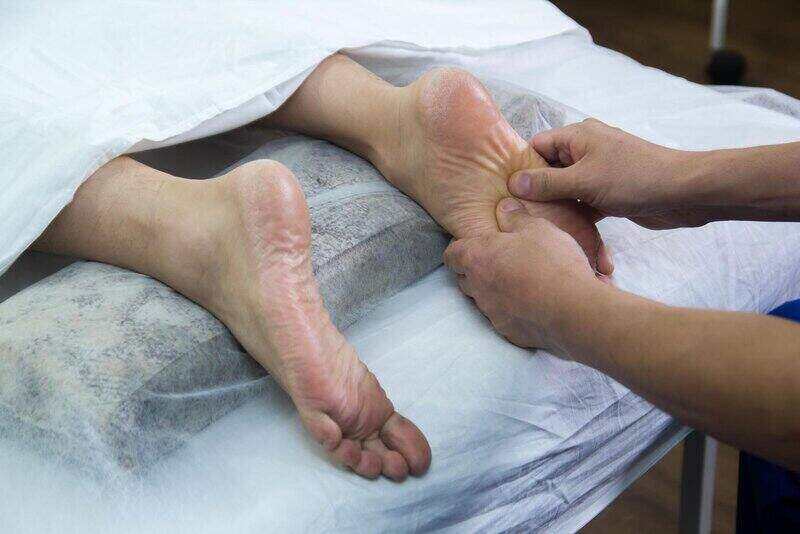
Energy Medicine for Chronic Pain Management
Posted by Beatrice Dixon on 2023-03-01
If you've been experiencing chronic pain, you may be looking for something more effective than prescription drugs. If you are, there are some energy medicine methods you can try. Some of these include acupuncture, acupressure, and Sham Reiki.
Acupressure
Acupressure is a natural healing technique that is used for pain management. It is known to reduce muscular tension, migraines, and nausea. This treatment can also improve energy levels, promote a sense of well-being, and alleviate symptoms of a number of diseases.
Acupressure can be done by a professional or by using a self-treatment device. The device is generally a wristband with a pressure sensor that works to apply precise therapeutic pressure to certain acupoints.
Before you start, be sure to consult a doctor. You may have a variety of conditions that acupressure can help with, including arthritis, back pain, and migraines. Also, check with your insurance provider to make sure acupressure is covered under your plan.
The acupressure procedure can take between an hour and two hours. Once you are positioned on a massage table, the acupressure specialist will press on acupoints on your body. They may use elbows, fingers, or feet.
Sham Reiki
Reiki is a holistic therapy that promotes a person's well-being and reduces depression, anxiety, pain, and stress. However, the evidence for its effectiveness is limited. Generally speaking, the most convincing studies are those that examine its effects on chronic and acute pain.
One of the most compelling findings is that Reiki is better than a placebo at activating the parasympathetic nervous system. The parasympathetic nervous system is known to play an important role in regulating pain and stress.
Other studies have shown that Reiki decreases blood pressure, heart rate, and respiration. In addition, patients in the Reiki group reported a reduction in pain and a decrease in the use of analgesics.
One of the most interesting findings is that Reiki was more effective than sham control in lowering depression scores. Interestingly, the placebo treatment group did not experience any significant differences.
Electrophysiologists
Electrophysiologists are physicians that treat electrical problems in the heart. They use advanced specialized equipment to identify the problem and provide the best possible treatment.
Cardiac electrophysiology is a specialty in cardiology that focuses on cardiac arrhythmias, a condition that can affect the electrical system of the heart. These specialists work with patients who are suffering from chronic and acute arrhythmias. Depending on the type of arrhythmia, treatments may include medicine, surgery, or implanted devices.
An electrocardiogram is a common test that a patient may undergo to detect an abnormal heart rhythm. During the test, an electrophysiologist guides a catheter into the heart and records its electrical activity. The results of this study help the doctor determine the causes of irregular heart rhythm.
Electrophysiologists can also diagnose and treat several types of abnormal heart rhythms. The doctor will also provide treatment options and prescribe medications.
Results of a study on energy medicine for chronic pain management
Energy medicine is a system of manipulating energy through the body. Practitioners believe that the body is infused with a life force called qi, which is pronounced "chee." This subtle energy must be balanced for good health. Acupuncture involves placing thin needles in specific locations on the body.
Chronic pain is a very challenging condition to manage. It is often accompanied by anxiety and depression. There are many factors that contribute to this condition. Studies have shown that energy medicine may reduce stress, increase self-awareness, and improve the overall quality of life. In addition, it has been shown to be a very effective pain reducer.
For this study, the participants were recruited by mail. They had been regular members of a health maintenance organization that provided energy healing. Some received more treatments than others. The protocol was designed to evaluate the full range of outcomes.
Alternatives to pain medications
For many people with chronic pain, pharmaceuticals are the go-to, and sometimes the only, pain medication. However, there are a number of safe, natural, and effective alternatives. Many of these are far out of reach for the average American.
A recent study by the Centers for Disease Control and Prevention (CDC) revealed that the most effective pain relief methods are non-pharmacological. These include non-drug treatments such as acupuncture, massage, and hypnosis. Despite the fact that these non-pharmaceutical approaches are proven to be more effective, there are still some who are reluctant to try them out.
While many Americans are still hesitant to try non-drug alternatives, there are several pitfalls to avoid. For instance, you should not self-diagnose your own condition or seek out non-drug remedies without first consulting your physician. You should also not assume that alternative therapies are only appropriate for patients with chronic pain.